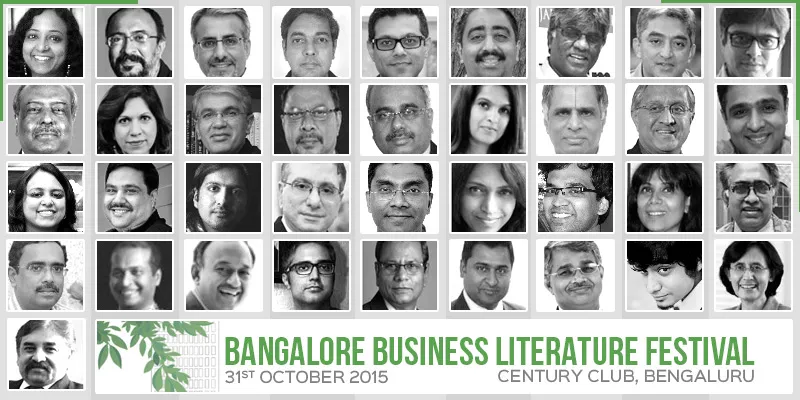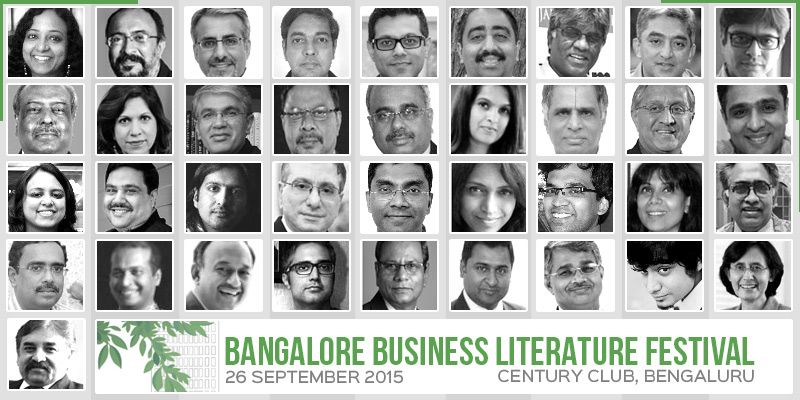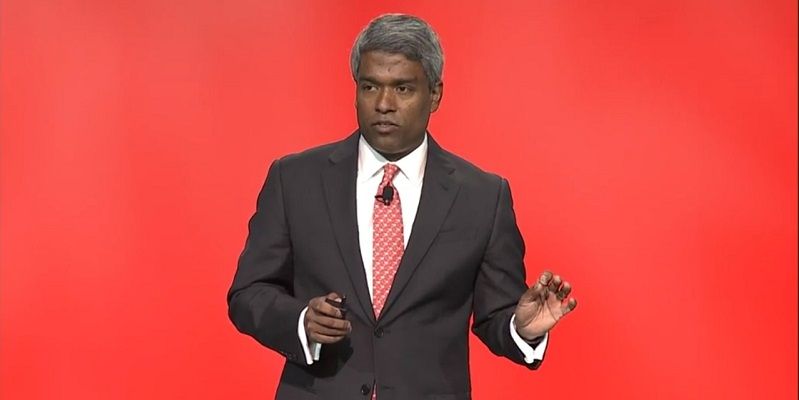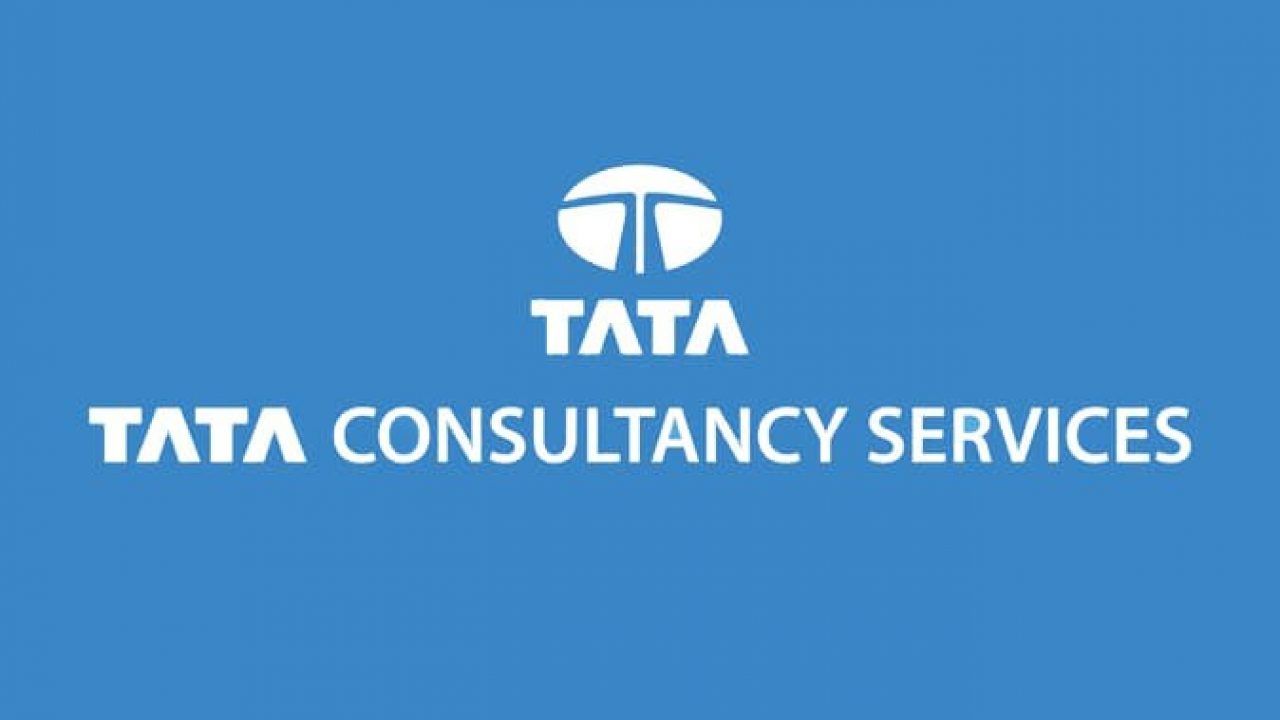'The startup revolution offers enormous opportunity to tell stories' – Bangalore Business Literature Festival
The first ever Bangalore Business Literature Festival kicks off on October 31, celebrating the business buzz and startup boom in India as well as the opportunities – and challenges – facing business writers, publishers, readers and entrepreneurs.

“Good business books are one of the best sources of inspiration and knowledge for enhancing skills and to beat the odds,” says Festival organiser Benedict Paramanand, author of ‘C.K. Prahalad: The Mind of the Futurist’ (see my book review).
From books to blogs and beyond, the Festival aims to be a catalyst for promoting business writing and publishing in India, and is taking the first big step in building a strong community of authors, readers and the media. Here is what some of India’s leading writers have to say about the status of business literature in the country today.
See also my takeaways from the earlier Bangalore LitFest 2014 (‘10 success tips for entrepreneurs’), Times Literary Carnival 2014 (‘India needs more entrepreneurs: Nandan Nilekani’) and Times LitFest 2015 (‘From Infosys to Snapdeal: 25 years of startup wisdom’).
Boom time
"Technology is impacting everyone - mobiles are used by over 750 million Indians. There is a huge demand for writeups in many forms: books, brochures, columns in newspapers, blogs, Facebook and WhatsApp posts, and YouTube videos. Whether they are about technology, products, or their impact on health and education, there are huge communities of readers and writers,” says Prof. S. Sadagopan, Director (President) of IIIT-Bangalore, a prolific author and newspaper columnist.
This boom translates to good news for business writers. “The startup revolution offers enormous opportunity to tell stories - both success and failure stories for multiple stakeholders,” he adds.
“There are quite a few business magazines, business newspapers and web-based business portals today where good articles are encouraged. There is good opportunity for business writers,” says Robin Banerjee, author of corporate books such as ‘Who Cheats and How? Scams, Fraud and the Dark Side of the Corporate World.’
India is on the threshold of growth, with a majority government in Delhi (in the Lok Sabha at least) after a decade or so. “This results in more information creation for public consumption. This necessarily creates opportunities for business writers,” Banerjee explains.
While the bookstores market is shrinking, there is growing interest to buy good books online. “The mobile-app syndrome has changed the market mix. Plus, there is enhanced interest in the non-fiction segment,” he says.
“Like any other genre, business writers and publishers share the same concerns - how to sell more, increase bottom-line and gather eye-balls,” says Preeti Shenoy, who is among the highest selling authors in India with bestsellers such as ‘Life is what you make it,’ ‘Tea for two and a piece of cake,’ ‘34 Bubblegums and Candies,’ and ‘It Happens for a Reason.’
“The Indian publishing industry is estimated to be growing at 18-20 percent each year, which is a fabulous number. Business writers could very well grab a big share of this pie,” says Shenoy. Market research firms such as Nielsen are assessing the market, but the thousands of tiny bookshops spread all over the country often do not figure in big reports.
“In the last quarter, India has emerged as the fastest growing economy, beating China. It looks all upbeat, which is great for business writers!” Shenoy says.
“We are seeing the movement of business literature from a niche, closed-door industry to an open and level playing field,” observes Sangeeth Varghese, globally acknowledged management thinker and author of ‘Open Source Leader: The Future of Organizations’ and ‘Decide to lead: 9 decisions that can make you a true leader.’
“This industry had once been reserved for the gurus of the world - people who have been there and done that: people like Jack Welch, CK Prahlad and John Kotter. However, with the advent of the Internet, the apple cart has been upset,” explains Varghese.
From the supply side (blogs, social media, self-publishing and ebooks) to the demand side, there are several economical and even no-cost options online. This leads to a large high-growth market and wider audience, says Varghese.
“It has become easier to bring out a book - because it no longer requires decades of research or experience. Now we can always create a successful book merely by aggregating others’ opinions or experience,” he adds.

Challenges
However, there is also the proverbial ‘dark side’ to the picture. “There is fragmentation of channels (too many of them), and media focusing only on speed rather than correctness. Business writing at least should reward correctness. I have seen leading newspapers mixing up millions and billions!,” cautions Prof. Sadagopan.
“With the advent of TV, reading habits among the larger population is shrinking. People are happy to watch a soap or the ‘breaking news’ syndrome on TV. A new wave of journalism is under way. A major challenge therefore is to get attention of readers,” says Robin Banerjee.
Good bookstores are looking for heavy and sometimes irrational discounts - this is making publishing a major challenge. “Commercial viability of publishing industry is under threat,” warns Banerjee.
There is also a dearth of quality business books in India as compared to the West. “In fact, one can count on one’s fingers the number of successful business non-fiction authors in India. Foreign authors (even with good books) cannot fire the imagination of Indian readers, as many of its contents will be irrelevant in the Indian context,” says Banerjee.
“The majority of business publishing still hovers around the casual opinion space, rather than the formal research driven space,” observes Sangeeth Varghese. This could also be a reflection of our education system, which is rote based rather than research and innovation based, he says.
The road ahead
However, there are ways out of some of this gloom and doom. “It is important to encourage Indian corporate executives and business professors with practical industry experience to write. Some will be good writers with a penchant for story-telling. This will help create a new market for relevant business literature,” recommends Robin Banerjee.
Books need to be promoted well, and more discussions held in schools and colleges. “Unless youngsters commence reading, books will ultimately face extinction – and that will be a sad day. ‘Catch them young’ needs to be practiced,” he urges, pointing to the use of apps as a publishing avenue.
“However, one has to bear in mind that even with great marketing a book will not sell unless it is good,” cautions Preeti Shenoy. Writing relevant, pithy, well-researched content is better than crouching behind business jargon which might limit the audience.
You can catch these authors and several more at the Festival next month, with tips for aspiring writers, emerging thought leaders and ambitious managers!











![[App Fridays] Amazon Academy heats up edtech's test prep segment; hits half a million downloads in beta](https://images.yourstory.com/cs/2/dc9aa1302d6c11e9aa979329348d4c3e/Amazonacademy-01-1604497983228.png)